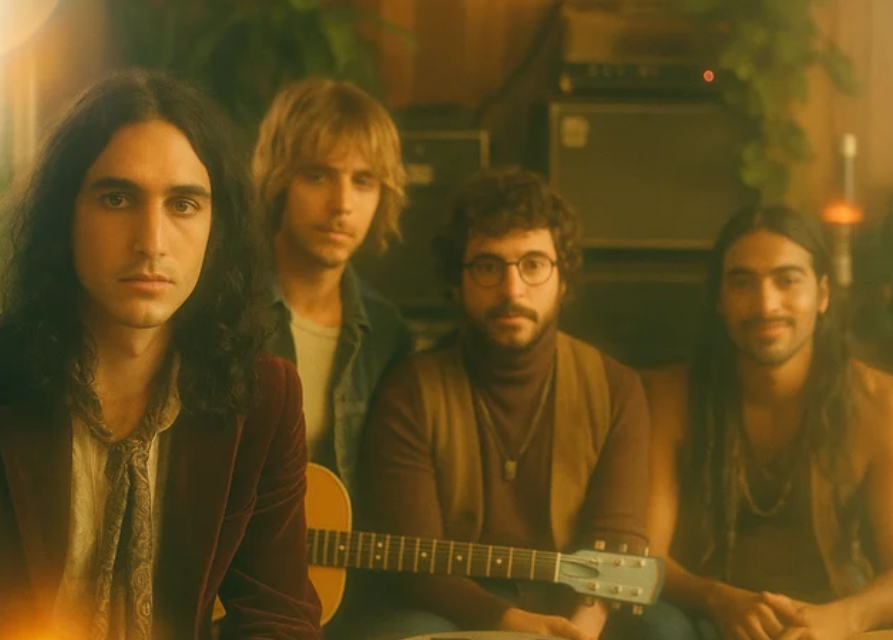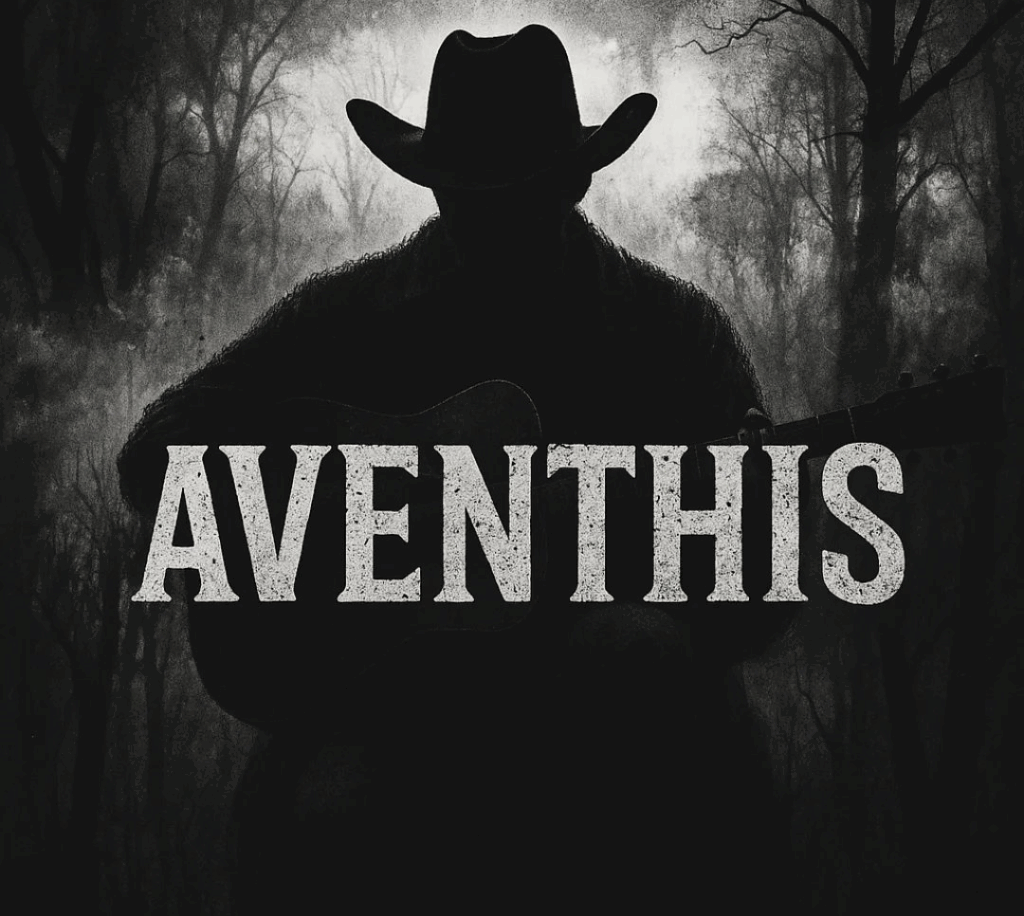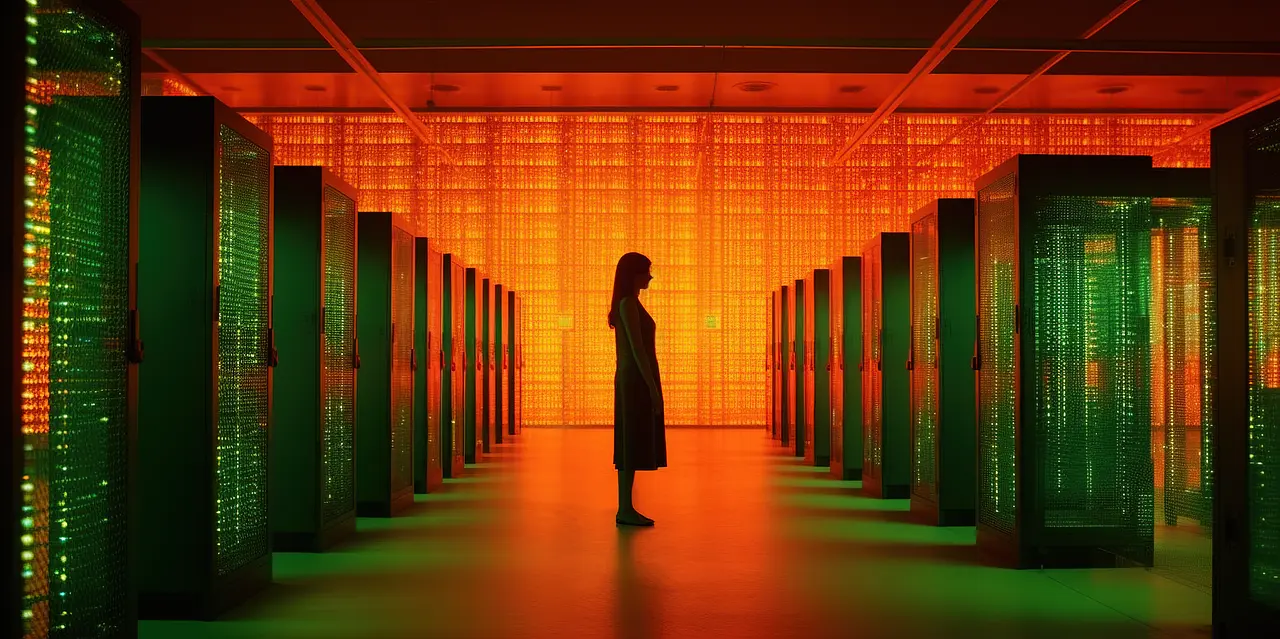Completely fabricated bands are quietly conquering music streaming services, accumulating millions of monthly listeners while earning substantial royalties. These AI-generated artists operate alongside human musicians on platforms like Spotify, often without listeners realizing they’re listening to artificial creations rather than real performers struggling for the same visibility and revenue.
The Velvet Sundown
The Velvet Sundown stands at the forefront of this AI music revolution, amassing over 600,000 monthly Spotify listeners within weeks of their debut. The band released two complete albums and announced a third, despite having no verifiable human members behind the music. Their promotional photos reveal smooth, symmetrical faces that display the unmistakable characteristics of AI-generated imagery.

Band member names like “Gabe Farrow, vocalist and mellotron sorcerer” produce no search results online, adding to the mystery surrounding their existence. The group initially denied their artificial nature, posting on X: “Yes, We Are A Real Band & We Never Use AI.”
According to BGR, their tracks appeared across Spotify’s algorithmic playlists, including Discover Weekly, introducing their music to unsuspecting listeners who only learned about the deception after media coverage exposed the truth.
Aventhis

Aventhis represents another striking example of AI success, accumulating over 1 million monthly Spotify listeners while maintaining complete anonymity about his artificial origins. This outlaw country “artist” released 57 tracks across three albums in just four months—a production pace that would challenge even the most prolific human musicians.
Music Business Worldwide’s investigation revealed that David Vieira created Aventhis using AI platforms like Suno or Udio, serving as both songwriter and producer. The sheer volume of content and rapid release schedule highlight how AI technology enables unprecedented music production speeds.
The Devil Inside

The Devil Inside boasts approximately 700,000 Spotify monthly listeners, with their biggest track “Bones In The River” reaching 1.6 million streams. Their biography claims they hail “from the rugged landscapes of the American South” while simultaneously admitting their characters are “illustrative” and their images represent a “carefully crafted visual world.”
Also Read: Men are opening up about mental health to AI instead of humans
The band sells merchandise featuring their AI-generated members, creating an unusual blend of digital fiction and commercial reality. This approach demonstrates how AI artists are developing complete brand identities beyond just music production.
The Expanding Network of AI Artists
Multiple AI artists are building significant listener bases across streaming platforms. Aven commands 463,000 monthly Spotify listeners, while DV8 attracts 295,000 and The Smoothies reach 200,000.
Other suspected AI acts including Velvet Funk, Stellar Cruise, and Funkorama contribute to a collective total of over 4.1 million monthly listeners across major streaming services.
Research reveals approximately 60 million people used AI tools to create music or lyrics in 2024, representing about 10% of surveyed consumers. This surge demonstrates the growing accessibility of AI-assisted music creation tools among everyday users, not just professional musicians or producers.
Fraud and Legal Battles
The AI music boom has attracted criminal exploitation alongside legitimate experimentation. A North Carolina musician orchestrated a $10 million streaming fraud scheme using AI-generated songs and automated bots.
This case marks one of the first high-profile instances of AI-enabled fraud in the music industry, involving hundreds of thousands of artificial songs designed to inflate play counts on platforms like Spotify and Apple Music.
Major record labels have launched legal battles against AI music generators. Lawsuits target companies like Suno for allegedly training models on copyrighted material without permission.
These legal confrontations could determine whether AI-generated music can continue using existing songs as training data, potentially reshaping how artificial music creation operates in the future.
Also Read: How a 22-year-old from Mumbai built a Perplexity rival with no funding
Deezer Takes Action
Deezer has emerged as the most proactive streaming service in addressing AI proliferation. The platform developed AI detection tools to combat approximately 10,000 AI-generated tracks uploaded daily. The company plans to exclude AI-created music from recommendations to protect artists’ rights and revenue streams.
Their detection system represents the industry’s first major technological response to artificial music flooding streaming platforms. This proactive approach contrasts sharply with other platforms’ responses to the AI music surge.
Spotify’s Silent Acceptance
Spotify maintains a notably different approach, remaining largely silent on the AI music debate. The platform continues featuring artificial artists with verified checkmarks and official “THIS IS…” playlists. Spotify’s algorithmic recommendations actively promote AI-generated content to users, potentially directing royalty payments away from human artists toward AI creators.
Industry experts estimate that AI-generated music fraud costs the global music industry hundreds of millions of dollars annually. The platform’s passive stance raises questions about its responsibility to distinguish between human and AI-created content.
The Future of Music Streaming
AI-generated artists increasingly displace human musicians in algorithmic playlists, directly affecting royalty distributions and discovery opportunities for legitimate performers. The rapid release schedules of AI acts allow some to produce dozens of songs monthly, flooding streaming platforms with content that competes for the same listener attention and playlist placements as human-created music.
Music industry professionals warn about a potential future where streaming services become dominated by AI-generated content. This scenario would make gaining visibility or generating sustainable income increasingly difficult for human artists.
The combination of lower production costs, infinite scalability, and algorithmic favorability gives AI music significant competitive advantages over traditional artist development and promotion models, fundamentally challenging how the music industry operates.





